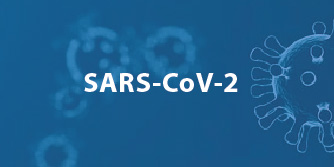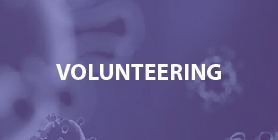Learning to be a doctor involves the most expensive - and one of the longest- courses of study for any degree, so it is essential that those thinking of medicine as a career are absolutely sure that this is what they want to do with their working lives, before taking the first step and applying to enter a medical school.
The English programme of medicine consists of six successive academic years of medical, preclinical and clinical studies and is adapted to the common European programme, in keeping with the European admission standards for medical education.
Applicants are expected to have excelled in basic science courses in physics, chemistry, biology, mathematics and English. The academic year formally starts on the 1st of October and is divided into two five-month terms (semesters), including examination sessions. The student must successfully complete all of the course work of one academic year, before being approved for promotion to the next year.
Part I of the study, the preclinical (or theoretical) two years at the Medical School, is devoted to the following subjects: medical chemistry (inorganic and organic), biophysics, biology, anatomy, histology, embryology, genetics, immunology, cytophysiology, biochemistry, computing techniques, physiology, Latin, physical education, first aid and resuscitation. Foreign students must take a course in the Polish language during these two years in order to be able to communicate with the patients from the third year onwards.
Part II of the study, the clinical four years, starts in the third year with pathology, pathophysiology, pharmacology, microbiology, introduction to medicine, paediatrics and surgery.
The whole medical spectrum of clinical sciences will be covered by the end of the sixth year, which includes: internal medicine, general surgery, paediatrics, gynaecology and obstetrics, neurology, dermatology, psychiatry, ophthalmology, radiology, otorhinolaryngology, urology, pulmonology, rheumatology, forensic medicine, public health medicine, anaesthesiology, medical ethics and psychology. After successfully completing all work required during these six years, and after having passed all the prescribed examinations, the student will receive Diploma "dyplom ukończenia studiów magisterskich na kierunku lekarskim z tytułem zawodowym lekarza" .
This document entitles a graduate student to receive postgraduate training and to take the state doctor's exam.
Students will be required to attend the lectures, seminars, laboratories, clinical demonstrations, rounds and other activities prescribed in the Curriculum, including hospital training with night and weekend attendance.
A four-week full-time hospital training is obligatory during the summer vacation July-September, starting after the first year of studies and proceeding throughout the next five years.
This practice may be done in your own country or in any other country.
Mission and profile of a graduate of the faculty of Medicine Wroclaw Medical University
Faculty of Medicine taking part in realising the mission of Wroclaw Medical University in Wrocław, taking into account its heritage and the best traditions of the Faculty of Medicine at the University of Jan Kazimierz in Lvov, looking after and adding new to the goods of the past takes actions for development of medical sciences as well as education of the young people.
The staff of the Faculty of Medicine respecting the manner of people choosing medicine as their way for life supports their decision and looks after creating their personality in the way that is devoted to a patient.
A graduate of the medical programme is awarded a MD degree. He should have theoretical and practical skills in the field of making the first diagnosis, treatment, prevention and rehabilitation necessary for being a doctor, most of all the skills of conducting an examination, checking psychical and physical condition together with the right recognition of additional examinations and a skill of serving with a right help in a state of danger as well as consultation and directing to a specialist.
He should be prepared to take part in the practiceonce he graduates, have knowledge and skills enabling, once he obtainsrights to practice as a doctor, to keep personal improvement in choosing a right specialisation and as far as the best graduates are concerned starting a new scientific career in the field of medicine.
A graduate of the Faculty of Medicine, regardless the occupation, should in his working, social and personal life distinguish himself with being honest, right, receptive for suffering; he should be able to communicate with patients and represantives of other occupations; once he is a doctor should obey regulations of Codex of Medical Ethics and good sietific practice in the scientific work.
Having achieved such a behaviour our graduate-doctor will be recognised by the society as a model of educated, honest, reliable and noble person.





